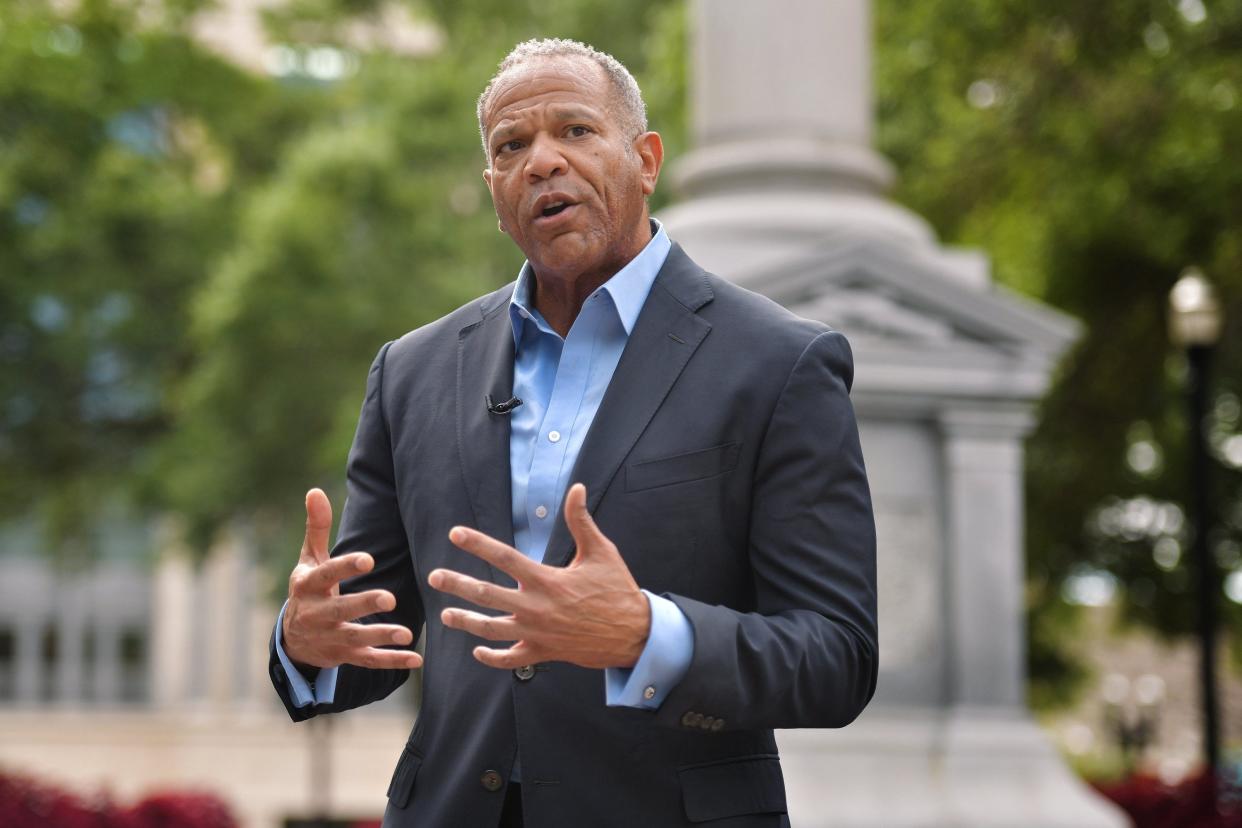Judge dismisses Jacksonville court fight over tax money to maintain Confederate monuments

- Oops!Something went wrong.Please try again later.
A federal judge has dismissed a lawsuit by a Jacksonville civil rights activist trying to block government spending to maintain tributes to the Confederacy, including county names memorializing Confederate figures.
Earl M. Johnson Jr., whose ancestors had been enslaved in the South before the Civil War, had argued that using his taxes to maintain “badges, indicia and vestiges of slavery” violated the U.S. Constitution’s 13th and 14th Amendments, which prohibited slavery and guaranteed equal protection under the law.
But a federal magistrate concluded Johnson hadn’t shown he had legal standing to file the suit and U.S. District Judge Marcia Morales Howard decided late last month that she agreed.
In an order ending the case, Howard wrote that “that plaintiff has no standing, and as a result the court has no subject matter jurisdiction over his claims.” That forced Howard to dismiss the lawsuit without prejudice, or without ruling whether its arguments had any merit.
Attorneys for the city and state, who were both sued, had asked to have the case dismissed with prejudice, deciding the case permanently in the government’s favor.
Johnson has asked for a far-reaching finding, seeking a ruling that would have barred use of public money for any expenses that perpetuated the memory of Confederates, from maintaining street signs like Stonewall and Jackson streets to tending grounds for Confederate statues like one outside Putnam County’s courthouse and the monument to women of the Confederacy in Jacksonville's Springfield Park. When the lawsuit was filed, the base of a dismantled Confederate memorial still stood in Jacksonville’s James Weldon Johnson Park outside City Hall, although Mayor Lenny Curry’s office had that removed last month.

Some African Americans regard Confederate memorials as endorsements of an unequal system of laws and customs where Blacks were assigned inferior status.
Howard had assigned U.S. Magistrate Patricia Barksdale, whom she outranks, to review the lawssuit and offer recommendations on how to proceed.
Barksdale concluded in April that Johnson’s grounds for suing were “insufficient,” pointing to earlier cases where courts found plaintiffs’ complaints shouldn’t be based on “a generalized grievance shared in substantially equal measure by … a large class of citizens.”
Johnson had objected to Barksdale’s recommendations, but Howard’s ruling said the objections weren’t specific enough and didn’t identify any legal or factual errors to challenge the magistrate’s findings.
This article originally appeared on Florida Times-Union: Jacksonville man's lawsuit over tax money to honor Confederates tossed

